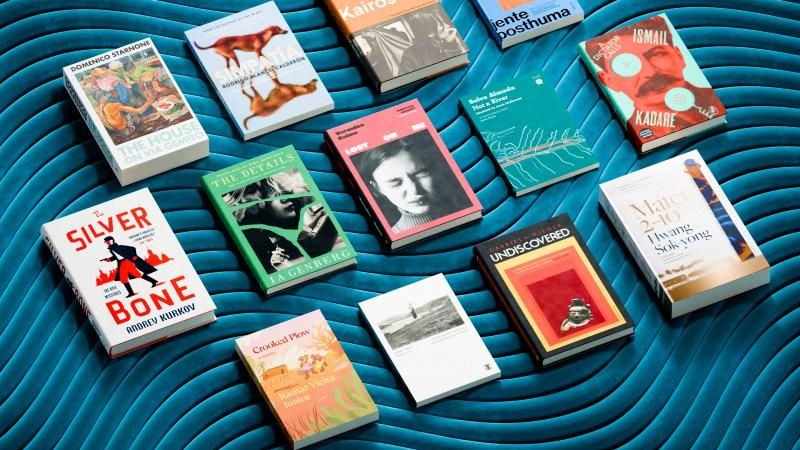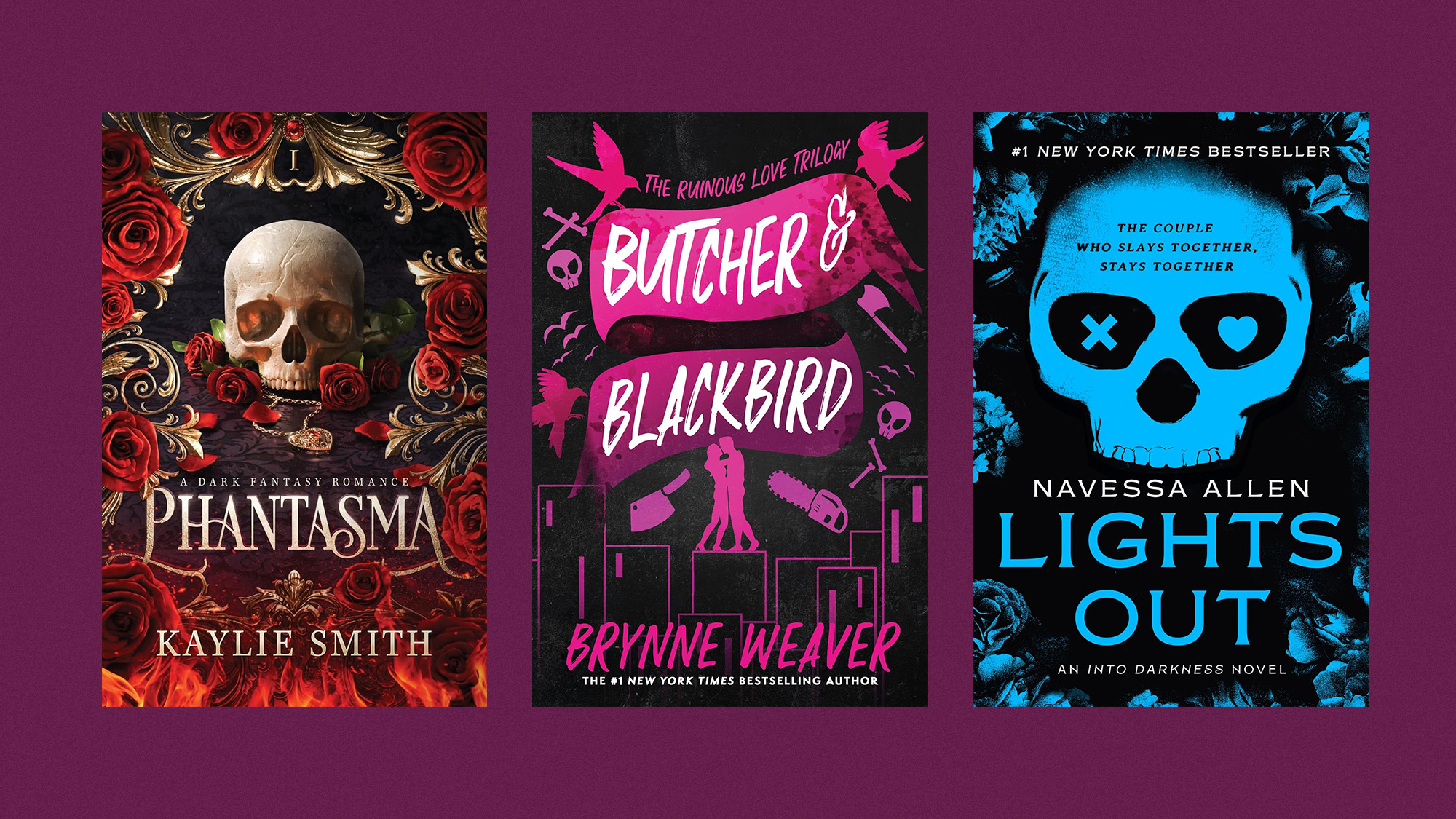The new 'boom' in Latin American fiction
Almost a quarter of International Booker Prize longlist comes from South America, a region in turmoil

A free daily email with the biggest news stories of the day – and the best features from TheWeek.com
You are now subscribed
Your newsletter sign-up was successful
In the 1960s, a revolutionary literary movement burst on to the global publishing scene in what would become known as the Latin American boom.
The international success of authors like Colombia's Gabriel García Márquez, Argentina's Julio Cortázar and Peru's Mario Vargas Llosa brought Latin American fiction to the literary forefront in the 20th century. Now, we are witnessing a second boom, according to judges of the International Booker Prize. South American authors account for "almost a quarter" of the longlist for this year's prize, said The Bookseller.
Argentinian poet and novelist Selva Almada, Venezuelan writer Rodrigo Blanco Calderón, Brazilian short story writer Itamar Vieira Junior and Peruvian "chronicler" Gabriela Wiener have all been longlisted for the prize, which recognises the best novels and short stories with translations published in the UK or Ireland last year. The list "highlights the growing pool of talented South American writers, signaling a second 'boom' in Latin American fiction", said prize administrator Fiammetta Rocco.
The Week
Escape your echo chamber. Get the facts behind the news, plus analysis from multiple perspectives.

Sign up for The Week's Free Newsletters
From our morning news briefing to a weekly Good News Newsletter, get the best of The Week delivered directly to your inbox.
From our morning news briefing to a weekly Good News Newsletter, get the best of The Week delivered directly to your inbox.
What was behind 'el boom'?
Last year, when four Irish authors appeared on the Booker Prize longlist, the eventual winner Paul Lynch was asked why Ireland produced such talented writers. The author of "Prophet Song" replied: "Can I let you into a secret? I think South America has the best writers."
The original "el boom" was born out of the political turmoil that overtook Latin America during the 1960s and 1970s. Long and bloody wars, military coups, repressive dictatorships, revolutions and the threat of nuclear war apparent in the Cuban Missile Crisis all stirred authors to depict their own nations.
But the boom was amplified by the economic development of Latin America, mass media and the growing attention on the region, according to Randolph D. Pope, author of "The Spanish American novel from 1950 to 1975", published in 1996. European publishing houses such as Barcelona's Seix Barral and the work of translators brought Latin American boom novels to international renown.
What might be driving a second boom?
Over the past few years, a similar wave of political upheaval and violence has swept the region, amid economic instability, poverty and the failure of the war on drugs.
A free daily email with the biggest news stories of the day – and the best features from TheWeek.com
Argentina has experienced record inflation, political turmoil and the election of the anarcho-capitalist Javier Milei as president.
Wiener's native Peru suffered a series of corruption scandals ending in a presidential impeachment and three presidents in a week, not to mention one of the world's worst Covid-19 death tolls. Her novel "Undiscovered" grapples with the search for post-colonial Peruvian identity.
In Brazil, the dramatic presidency of far-right Jair Bolsonaro was marked by rising crime, social division and the devastation of the Amazon rainforest. Last year, Bolsonaro's supporters stormed the seat of government after his successor's inauguration, echoing the Trump-supporting Capitol riots in the US. Vieira Junior's "Crooked Plow" tells the story of two sisters haunted by a history of violence.
Venezuela has suffered a mass exodus of citizens fleeing the corruption and desperate poverty of Nicolás Maduro's authoritarian regime. The longlisted "Simpatía" by Blanco Calderón offers an allegory set in Caracas during the dictatorship.
Elsewhere in the region, poverty and drug-related gang violence have engulfed Ecuador, Haiti, Honduras, Colombia, Mexico and many other areas. El Salvador now boasts one of the most repressive dictatorships in the world.
This year's longlist, chosen from 149 books published between May 2023 and April 2024, comprises works that "speak of courage and kindness, of the vital importance of community, and of the effects of standing up to tyranny", said Rocco.
A number of the books "highlight the struggles of individuals and minorities in the face of oppression", said the prize website. "History, both personal and national, weighs heavily on characters", including "the legacy of slavery and land theft in Brazil".
What next?
The judging panel – this year chaired by broadcaster and journalist Eleanor Wachtel – will reveal a shortlist of six on 9 April, while the winner will be announced in London on 21 May.
Both the author and translator of the winning novel each receive £25,000, while shortlisted authors and translators receive £2,500.
Harriet Marsden is a senior staff writer and podcast panellist for The Week, covering world news and writing the weekly Global Digest newsletter. Before joining the site in 2023, she was a freelance journalist for seven years, working for The Guardian, The Times and The Independent among others, and regularly appearing on radio shows. In 2021, she was awarded the “journalist-at-large” fellowship by the Local Trust charity, and spent a year travelling independently to some of England’s most deprived areas to write about community activism. She has a master’s in international journalism from City University, and has also worked in Bolivia, Colombia and Spain.
-
 What to expect financially before getting a pet
What to expect financially before getting a petthe explainer Be responsible for both your furry friend and your wallet
-
 Pentagon spokesperson forced out as DHS’s resigns
Pentagon spokesperson forced out as DHS’s resignsSpeed Read Senior military adviser Col. David Butler was fired by Pete Hegseth and Homeland Security spokesperson Tricia McLaughlin is resigning
-
 Colbert, CBS spar over FCC and Talarico interview
Colbert, CBS spar over FCC and Talarico interviewSpeed Read The late night host said CBS pulled his interview with Democratic Texas state representative James Talarico over new FCC rules about political interviews
-
 The 8 best superhero movies of all time
The 8 best superhero movies of all timethe week recommends A genre that now dominates studio filmmaking once struggled to get anyone to take it seriously
-
 Book reviews: ‘Hated by All the Right People: Tucker Carlson and the Unraveling of the Conservative Mind’ and ‘Football’
Book reviews: ‘Hated by All the Right People: Tucker Carlson and the Unraveling of the Conservative Mind’ and ‘Football’Feature A right-wing pundit’s transformations and a closer look at one of America’s favorite sports
-
 Josh D’Amaro: the theme park guru taking over Disney
Josh D’Amaro: the theme park guru taking over DisneyIn the Spotlight D’Amaro has worked for the Mouse House for 27 years
-
 Book reviews: ‘Vigil: A Novel’ and ‘Fear and Fury: The Reagan Eighties, the Bernie Goetz Shootings, and the Rebirth of White Rage’
Book reviews: ‘Vigil: A Novel’ and ‘Fear and Fury: The Reagan Eighties, the Bernie Goetz Shootings, and the Rebirth of White Rage’Feature Taking on the space between life and death and a look back at a 1984 shooting that shocked New York City
-
 The battle over the Irish language in Northern Ireland
The battle over the Irish language in Northern IrelandUnder the Radar Popularity is soaring across Northern Ireland, but dual-language sign policies agitate division as unionists accuse nationalists of cultural erosion
-
 The best fan fiction that went mainstream
The best fan fiction that went mainstreamThe Week Recommends Fan fiction websites are a treasure trove of future darlings of publishing
-
 Book reviews: ‘The Mattering Instinct: How Our Deepest Longing Drives and Divides Us’ and ‘Family of Spies: A World War II Story of Nazi Espionage, Betrayal, and the Secret History Behind Pearl Harbor’
Book reviews: ‘The Mattering Instinct: How Our Deepest Longing Drives and Divides Us’ and ‘Family of Spies: A World War II Story of Nazi Espionage, Betrayal, and the Secret History Behind Pearl Harbor’Feature The pursuit of ‘mattering’ and a historic, devastating family secret
-
 The best dark romance books to gingerly embrace right now
The best dark romance books to gingerly embrace right nowThe Week Recommends Steamy romances with a dark twist are gaining popularity with readers